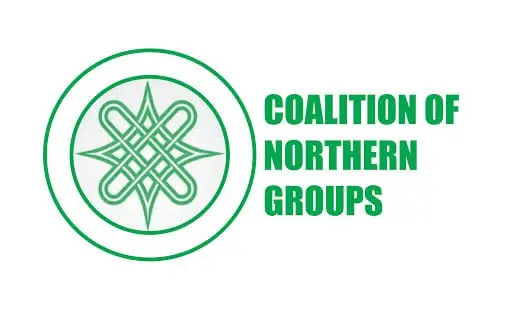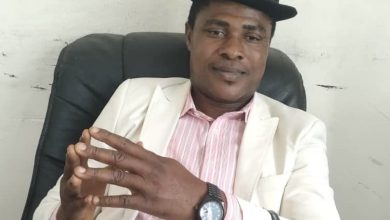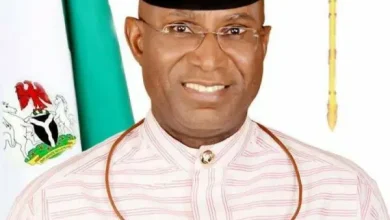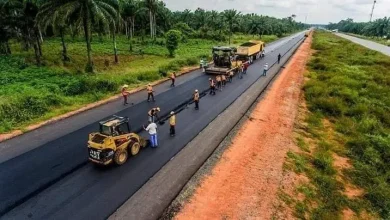Coalition to Unveil Major Political Party Ahead of 2027, Led by Northern Bloc

Leaders of the opposition group in the north are rethinking their plans and leading the charge to create a new mega coalition political party that will represent the interests of the area and its citizens in the general elections of 2027.
According to a statement released during the National Political Consultative Group (NPCG) meeting in Abuja on Sunday, the Northern opposition bloc said the new mega political party’s name would be revealed shortly.
Former Secretary to the Government of the Federation (SGF) Babachir Lawal, the Chairman of the NPCG, signed the document, which stated that representatives from Abuja and all 19 federation states decided that the North must act as a single unit in making a political decision to guarantee the region receives the most benefit from national political participation.
Serious concerns were raised at the discussion over the region’s deteriorating security situation, which it said has tripled unemployment and misery in the northern region and caused hardship, the loss of many lives, and property valued at millions of naira.
Read Also: Kalu Admits Nigerians Are Suffering, Promises Better Future in 2–3 Years
“Unprecedented levels of insecurity under the current administration have resulted in widespread poverty, hunger, and destitution, as well as the collapse of primary and secondary education,” the communiqué said.
The meeting concluded that sincere leaders who will be honest in managing political parties and public sector governance are needed in the region and, in fact, the country.
Additionally, participants “condemned the impunity of elected leaders who abdicate their mandate by claiming to make decisions for their constituents without consulting them, citing recent developments in which elected state governors and legislators usurp the power of the people by endorsing themselves and other individuals for re-election to political offices without consulting their constituents, and advised that constituents should sanction such elected officials to serve as a deterrent.”
The participants “agreed on the need to escalate the group’s initiative to all the nineteen (19) states and FCT through the provision of the appropriate template and resolved that the region must prioritize and promote industrialization and high productivity in all sectors in order to exit the present economic quagmire,” according to the communique.
The North would only back candidates who have an enforceable pledge to safeguard and protect the region’s interests, regardless of the candidate’s place of origin, it was further decided during the conference.
The statement went on to say: “That, moving forward, the North must prescribe its support for candidates at elections on enforceable agreement for the purpose of ensuring and protecting the informed interests of the region, regardless of the candidates’ origins.”
It was ultimately decided at the conference to form committees to help carry out the choices and resolutions made there.
The Peoples Redemption Party (PRP), meanwhile, has strongly denounced the recent endorsement of President Bola Ahmed Tinubu for the 2027 presidential contest by the Progressive Governors Forum, the APC National Working Committee, and the party’s National Assembly members at the APC National Summit on Thursday, calling the action “extremely worrying for democracy.”
A statement signed by Mallam Falalu Bello, OFR, its National Chairman, was released over the weekend.
“The endorsements expose the APC’s attempt to cling to power through orchestrated endorsements rather than the genuine voice of the Nigerian people,” according to the People’s Redemption Party (PRP), which argued the endorsements were motivated by desperation rather than true democratic will.
A crucial lesson from history and current political events is that power is maintained by the confidence and trust of the populace rather than only by strategies. When people lose faith in the government, even the most powerful political apparatuses fall apart, as demonstrated by examples from around the world.
“President Laurent Gbagbo, armed with fake endorsements like President Tinubu, state structures, and resources, sought to cling to power,” the PRP remembered by citing the 2010 election in Ivory Coast. But in the end, the electorate turned against him. Their choice sprang from the shared experience of adversity, including hunger, poverty, and financial dissatisfaction.
Hunger never forgets, and no amount of political machinery or propaganda will ever fully replace the voice of a suffering people, as the Ivorian’s refusal showed. Hakainde Hichilema, a young opposition candidate, defeated Edgar Lungu in Zambia after his control over the media, state apparatus, and finances proved insufficient. Hichilema changed the political landscape by converting people’s resentment into votes and demonstrating that people vote based on their suffering rather than party affiliation.
When the public loses faith in the effectiveness and legality of power, it becomes fragile, even when it is supported by the most robust institutions. This is further demonstrated by the Gambia instance of Yahya Jammeh. His bid to govern for “a billion years” was finally defeated by the will of the people, and even his devoted army retreated when the vote overrode propaganda.
Power is reliable when it is founded on the trust of the populace; it is brittle when it is founded on desperation and manipulation. In other words, even the most complex plans become noise, defections become theater, endorsements become comedy, and power eventually shifts away when the populace loses faith in its leaders.
“(President) Tinubu’s political machinery and endorsements may seem formidable now, but they cannot silence the cries of the masses suffering under skyrocketing fuel prices, failing infrastructure, joblessness, insecurity, brazen corruption, and a crumbling economy,” the PRP said, stressing that Nigeria’s situation echoes this truth.
The disenchantment of the populace is evident, and when individuals mutter, ‘This is not what we voted for,’ it indicates a serious rift between the governed and the leadership. Furthermore, the indices mentioned above are not merely endorsements or political alliances; they are the actual votes that will decide the future.
The PRP went on to say that the APC’s present decision to support Tinubu’s candidacy “seems to be a textbook case of a desperate power grab—an attempt to consolidate domination through endorsements and political theater,” rather than providing real democratic dividends. No matter how packed or practiced the political stage gets, the people’s voice—their suffering and ambition—remains the final judge of true power, as history and contemporary reality demonstrate.
“Delivering tangible services, security, and dignity to the people is what democracy is all about,” the PRP urged the APC and President Bola Tinubu to acknowledge. There is no chance of success for any desperate attempt to subvert this essential truth.
“We are with the Nigerian people who demand genuine change, not a grab for power. The statement concluded, “The future belongs to those who realize that power must be based on the trust of the people, not on the desperation of those who want to hold onto it at all costs.”





